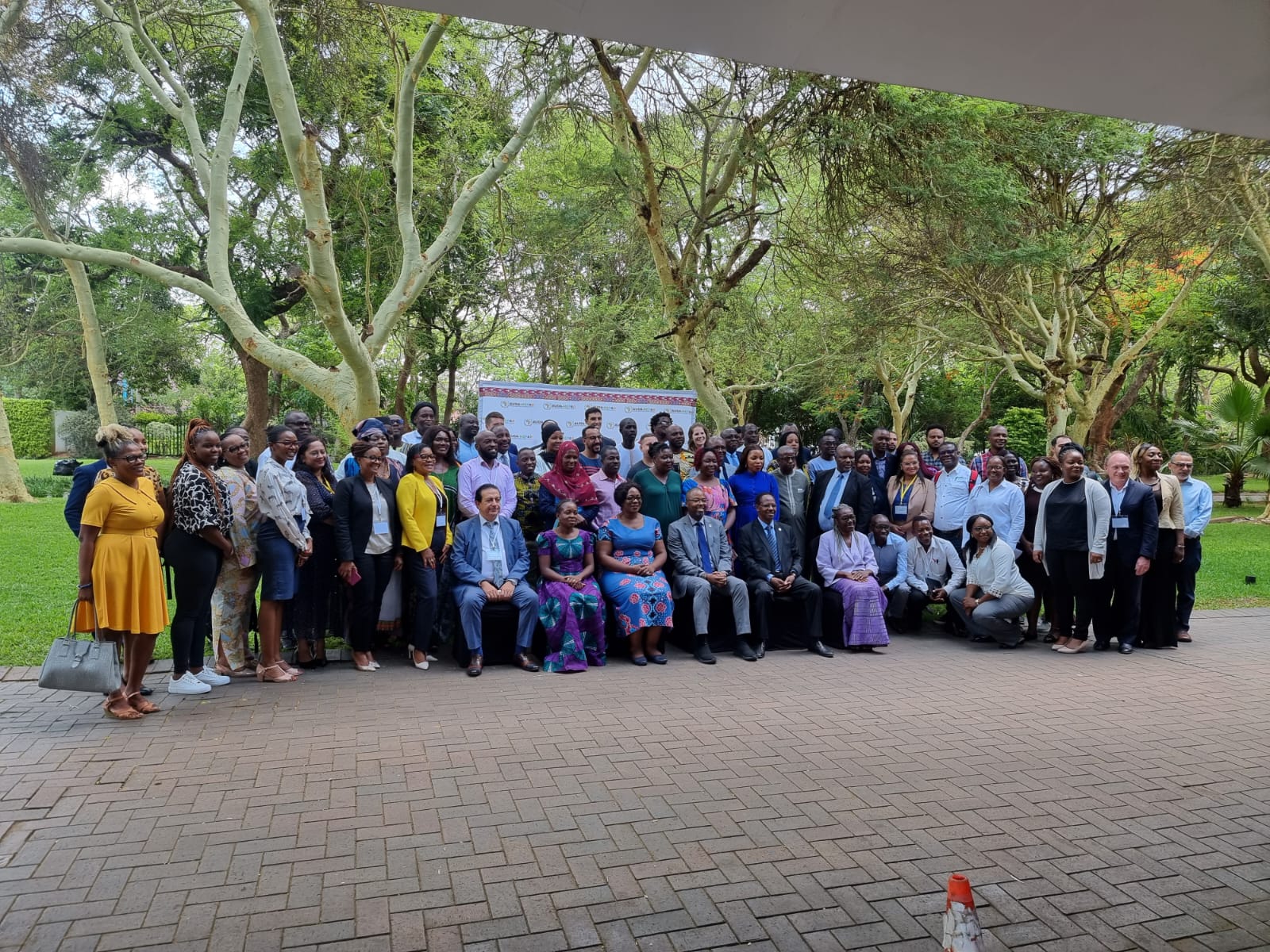|
Getting your Trinity Audio player ready…
|
Writes Baboloki Semele, Lusaka, Zambia
In preparation for the upcoming Kigali Health Conference scheduled for February next year in Rwanda, a collaborative effort involving UNAIDS, the African Union Development Agency (AUDA) (NEPAD), healthcare experts, and civil society recently unfolded in Lusaka, Zambia. The focus of the two-day conference was to deliberate on strategies for increasing domestic health financing to fortify health systems and achieve Universal Health Coverage (UHC) with assured quality across Africa.
Nardos Bekele-Thomas, CEO of AUDA-Nepad, emphasized the significance of this gathering in cementing public-private partnerships to attract healthcare investments to the continent and provide platforms for collaboration among civil society and other stakeholders. She highlighted the commitment to coordinate and accelerate the implementation of the African Leadership Meeting Declaration on Investing in Health.
Bekele-Thomas stressed the vital role of the private sector in supporting government efforts to achieve UHC by investing in health infrastructure, engaging the private sector more actively, strengthening health systems, and ensuring access to quality healthcare services. The declaration also recognizes the interconnectedness of health with education, poverty, and gender equality.
Africa faces a pressing health challenge, importing 95% of its drugs while contributing only 3% to global medicine production. Bekele-Thomas noted that Africa could be losing up to $1 billion annually on overseas medical services, emphasizing the financial impact of healthcare-related travel, such as Nigerians spending over $200 million yearly on medical tourism to India.
Dr. Amany Asfour, Chair of the African Union Business Council, highlighted their efforts to establish a healthcare cluster, partnering with the private sector to promote health and sustain investments in Africa. The focus includes capacitating healthcare practitioners, enhancing healthcare systems, implementing skills development training, and improving infrastructure.
Elsie Ayeh, Vice President of the National Network of People Living with HIV, emphasized the need for continued support for individuals living with HIV without discrimination. She called for identifying opportunities for increased private sector investment and proposed a continental framework to address medicine shortages.
Themed “Sustaining the HIV Response through Financing and Investing in Health Systems for Improved Health Security on the Continent,” the conference aims to share best practices and lessons learned from private sector engagement in health and health financing.
The initiatives stem from the African Leaders Meeting (ALM) declaration adopted in February 2019, emphasizing increased domestic health financing to strengthen health systems and achieve Universal Health Coverage in Africa. The declaration builds on political commitments from AU member states to allocate at least 15% of national budgets to health, as outlined in the Abuja 2001 agreement. Heads of state commit to reviewing progress annually against the benchmarks of the Africa Scorecard on Domestic Financing for Health.
